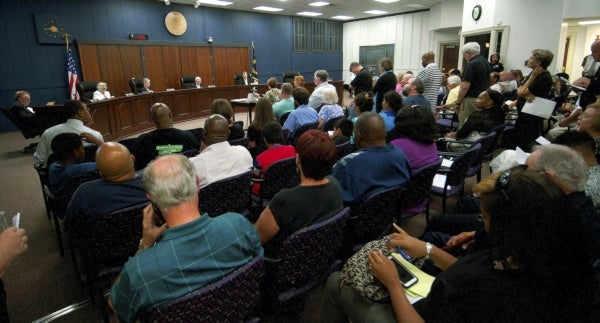Editorial: Empowering Salisbury citizens
Published 12:00 am Thursday, January 21, 2016

- People line up in 2015 to speak at a public comment period. (Jon Lakey/Salisbury Post)
Salisbury City Council has seen the light. The council has finally voted to hold council meetings later in the day when more working people could attend without taking time off. The council moved the meetings only an hour — from 4 to 5 p.m. — but that’s more flexibility on the time issue than the council has shown in decades.
Don’t expect throngs to start attending City Council meetings. The change will have more symbolic value than practical effect. Citizen turnout is driven more by not-in-my-back-yard issues than time of day.
Setting a public comment period at 6 p.m. at every regular council meeting, on the other hand, is both useful for and respectful toward the public. Council meetings are over when they’re over; there’s no specific time to end. Having to wait through an entire meeting — only once a month — has been a disincentive to participate in the public comment period. Now that, too, will change. The comment period will begin at 6 p.m. or soon thereafter.
These minor changes show the value of bringing new voices onto the council. They bring up issues that look like no-brainers to anyone not entrenched in City Hall’s ways. That’s why David Post, a new council member, pushed this issue. Don’t discount the insights and experience of people who have served on the council longer, though. Salisbury appears to have a good mix that includes new members David Post and Ken Hardin, returning members Maggie Blackwell and Brian Miller and new Mayor Karen Alexander, who has a few years’ experience on the council. Taken together, this is a new council.
Let’s hope this group is willing to tackle other steps to increase public participation and empower voters. At the top of the list is the way Salisbury chooses its mayor. Council members choose among themselves, traditionally anointing the top vote-getter. Voters should have a direct say on that matter.
Other issues are more critical to the city’s future — law and order, education and economic development, for starters. By taking care of these “housekeeping” matters, though, the council sets the stage for stronger and more inclusive debate.


